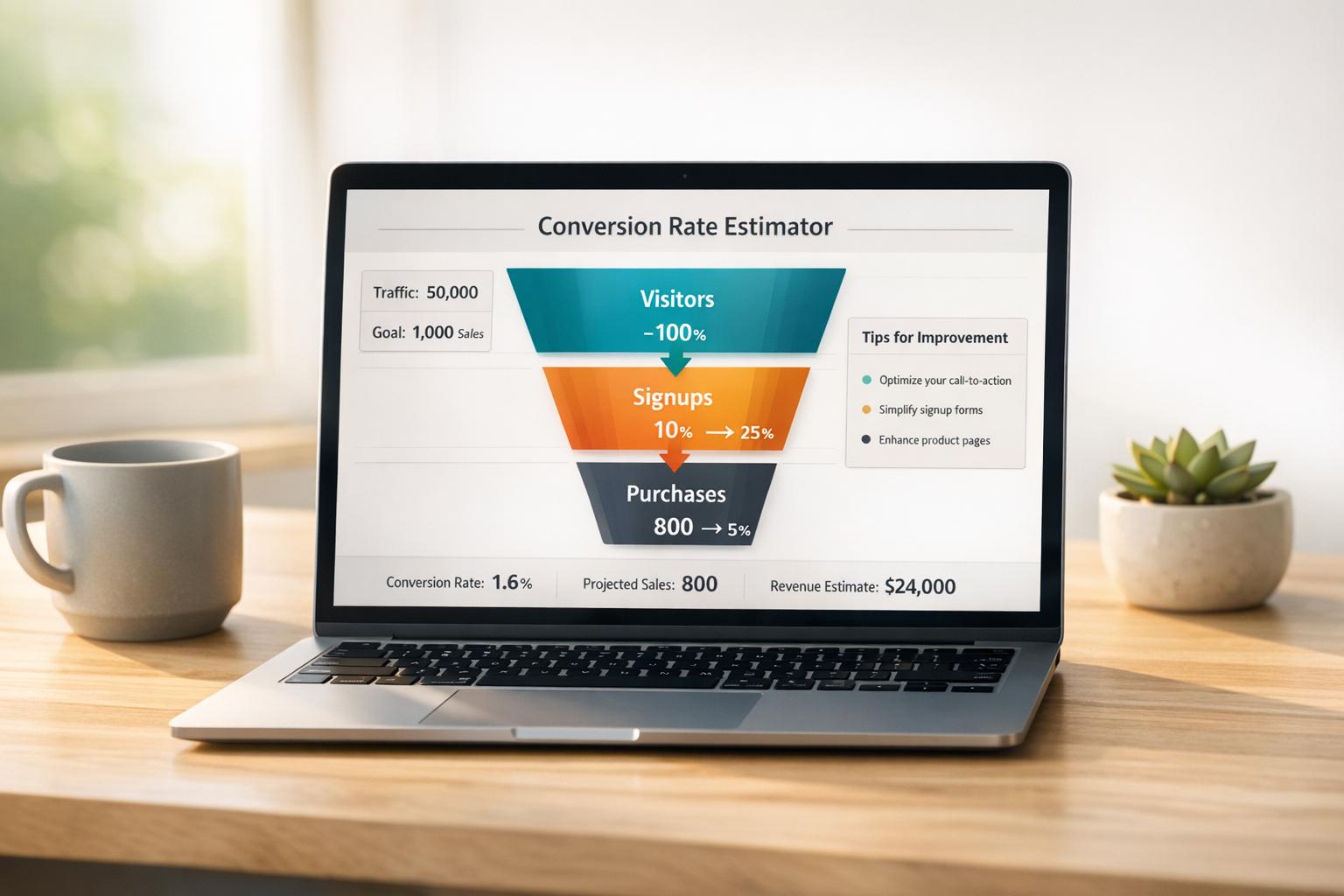

Page Ranking Software: Tools That Help You Climb the SERPs

Page Ranking Software: Tools That Help You Climb the SERPs
 11-06-2025 (Last modified: 03-10-2025)
11-06-2025 (Last modified: 03-10-2025)
Here’s a simple fact for you: If your pages aren’t showing up in search, they’re not working as hard as they should. Ranking well isn’t just about publishing good content anymore (although good content is very much still needed!), it’s about knowing exactly where your pages stand in the SERPs, what’s influencing those positions, and how your competitors are moving ahead. That’s where page ranking software steps in.
Page ranking software tools don’t just track numbers. They give you visibility into keyword trends, algorithm shifts, and user behavior, and these insights help you make smarter SEO decisions. Pair that with testing platforms like PageTest.AI, and you move from watching rankings to actively improving them.
Let’s go through the top tools, strategies, and tips to help you track, improve, and future-proof your page rankings…

Contents
-
What Is Page Ranking Software?
-
Why Page Ranking Software Matters
-
Key Features to Look For
-
Top Page Ranking Software Tools (2025 Update)
-
How to Choose the Right Tool
-
Tips for Getting the Most Out of Your Software
-
Introducing PageTest.AI
-
FAQ: Page Ranking Software
1. What Is Page Ranking Software?
Page ranking software is a tool (or suite of tools) designed to help you monitor where your web pages rank in search engine results – most commonly, Google. These tools track keyword positions, show historical trends, and reveal which pages are gaining or losing visibility.
“90.63% of content gets no traffic from Google.” Ahrefs
But good tools don’t just tell you where you rank – they help you understand why, and what to do about it.
From SEO freelancers to enterprise marketers, page ranking software has become essential to improving online visibility, keyword strategy, and ultimately – revenue.
2. Why Page Ranking Software Matters
Search rankings are no longer a guessing game. If you want to compete in 2025’s SERPs, you need to track performance in real-time and understand what’s working (and what isn’t).
Here’s why the right page ranking software matters:
-
Data-driven decisions: Know which pages and keywords are underperforming.
-
Competitor tracking: See who’s outranking you, and how.
-
SEO ROI: Tie improvements in rankings to traffic and revenue.
-
Google algorithm tracking: Spot ranking drops related to updates.
-
Content strategy: Identify keywords to target or refresh.
And with Google placing more weight on helpful, experience-based content (thanks EEAT), knowing how your content performs across intent types is more important than ever.
“On average, the #1 result in Google has a CTR of 27.6% — nearly 10x higher than the 10th result.” Backlinko
3. Key Features to Look For
Not all page ranking tools are built the same. Here’s what to look for in a strong platform:
-
Accurate, real-time rank tracking (especially for mobile vs desktop)
-
Local and international tracking (great for location-specific SEO)
-
Keyword grouping and tagging
-
Competitor comparison
-
Historical data for trend analysis
-
SERP features tracking (like featured snippets, knowledge panels, FAQs)
-
Reporting dashboards that are easy to share with clients or teams
-
Alerts and automation when rankings shift significantly
Bonus if it integrates with Google Search Console, Google Analytics 4, or PageTest.AI for deeper insights.

4. Top Page Ranking Software Tools (2025 Update)
Here are the tools SEO pros trust in 2025 for accurate page rank monitoring and insights:
1. SEMrush
-
Best for: All-in-one SEO and marketing teams
-
Features: Keyword tracking, site audit, content gap analysis, local SEO tools
-
Pricing: From $129.95/month
-
Strength: Excellent for tracking SERP features + competitor benchmarks
2. Ahrefs
-
Best for: Backlink-focused SEOs
-
Features: Rank tracking, backlink audits, keyword research, content explorer
-
Pricing: From $99/month
-
Strength: Superb link insights paired with solid rank tracking
3. SERPWatcher by Mangools
-
Best for: Simplicity and affordability
-
Features: Real-time keyword tracking, daily updates, keyword difficulty
-
Pricing: From $49/month
-
Strength: Beginner-friendly dashboard with actionable insights
4. AccuRanker
-
Best for: Agencies and power users
-
Features: Ultra-fast, accurate daily updates, dynamic tagging, shareable reports
-
Pricing: From $116/month (based on number of keywords)
-
Strength: Lightning-fast and extremely scalable
5. Google Search Console (Free!)
-
Best for: Budget-conscious site owners
-
Features: Track average position, CTR, impressions, and page performance
-
Pricing: Free
-
Strength: Direct-from-Google data; ideal for complementing other tools
“Businesses that track keyword performance weekly are 2.3x more likely to see measurable SEO improvements.” Search Engine Journal
5. How to Choose the Right Tool
Ask yourself:
-
Do I need mobile and local tracking?
-
Am I tracking hundreds of keywords or just a handful?
-
Will clients or team members need reports?
-
Is budget a factor?
-
Do I need integration with testing platforms like PageTest.AI?
If you’re just starting, a combo of Google Search Console + SERPWatcher can work wonders. For agencies or in-house SEO teams, look toward SEMrush or AccuRanker for more power and scale.
6. Tips for Getting the Most Out of Your Software
-
Track keyword intent, not just volume (informational vs commercial).
-
Group keywords by page to track holistic page performance.
-
Monitor SERP volatility: some industries are more volatile than others.
-
Export historical reports monthly to spot trends.
-
Test landing page variants with PageTest.AI and measure impact on rankings.
7. Introducing PageTest.AI
Once you’re tracking your page rankings, the next question becomes: how do I improve them?
That’s where PageTest.AI comes in.
PageTest lets you:
-
A/B test headlines, layouts, and calls-to-action
-
Experiment with content updates and semantic targeting
-
Monitor impact on SEO metrics like dwell time and bounce rate
-
Validate changes before rolling them out across multiple pages
By pairing your page ranking software with PageTest.AI, you go from passive tracking to active optimization which is the the real key to climbing the rankings in 2025.
FAQ: Page Ranking Software
What is page ranking software?
Page ranking software tracks where your web pages appear in search engine results for specific keywords. It helps you monitor SEO performance and spot ranking changes.
What’s the best free page ranking software?
Google Search Console is the best free option. It provides keyword-level data, average ranking, and search impressions directly from Google.
How often should I check my page rankings?
Weekly is a good baseline. For high-stakes pages or volatile niches, daily tracking (with tools like AccuRanker) is ideal.
Can page ranking software improve my SEO?
Indirectly, yes. These tools don’t improve rankings on their own but help you make data-driven decisions that can lead to better SEO performance.
What’s the difference between rank tracking and SEO audit tools?
Rank trackers focus on keyword positions, while SEO audit tools analyze technical issues, on-page factors, and backlink health.
say hello to easy Content Testing
try PageTest.AI tool for free
Start making the most of your websites traffic and optimize your content and CTAs.
Related Posts

 09-02-2026
09-02-2026
 Ian Naylor
Ian Naylor
Content Variation Idea Generator
Struggling with fresh content ideas? Use our Content Variation Idea Generator to brainstorm unique angles and formats tailored to your audience!

 07-02-2026
07-02-2026
 Ian Naylor
Ian Naylor
Website Conversion Rate Estimator
Estimate your website’s conversion rate with our free tool! Input traffic and goals to get tailored insights and tips to improve your results.

 05-02-2026
05-02-2026
 Ian Naylor
Ian Naylor
Landing Page Element Analyzer
Analyze your landing page with our free tool! Get actionable insights on headlines, CTAs, and layout to skyrocket user engagement and conversions.
